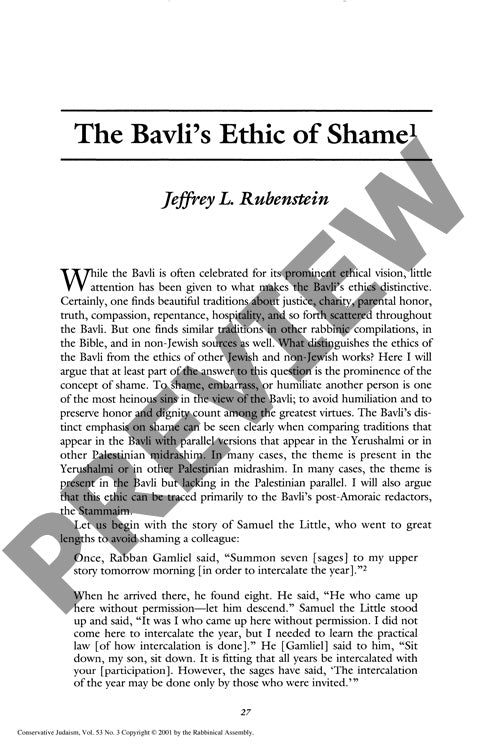The Bavlis Ethic of Shame
Couldn't load pickup availability
The prohibition against shaming others emerges as a distinctive ethical emphasis in the Babylonian Talmud (Bavli), markedly absent from Palestinian rabbinic sources. While both traditions share many ethical principles, the Bavli uniquely elevates the avoidance of shame and humiliation to paramount status, often equating these transgressions with bloodshed or adultery. Through form criticism and comparative analysis of Hebrew-Aramaic linguistic shifts, parallel traditions across rabbinic compilations reveal systematic reworking by the Bavli's redactors, particularly the post-Amoraic Stammaim, to emphasize shame's severity. This ethical development traces directly to the institutional structure of late Babylonian academies, where scholars engaged in dialectical argumentation before large audiences of students and colleagues. Unlike the intimate disciple circles of Palestinian rabbis, these populous academic settings created public forums where intellectual failure carried profound social consequences, including humiliation and loss of academic rank. The research demonstrates how the Bavli's distinctive shame ethic emerged from specific Babylonian institutional conditions: structured academies, dialectical methodology, and the public nature of scholarly discourse, which rendered academic interactions particularly vulnerable to verbal violence and humiliation.

More Information
-
Physical Description
-
Publication Information
Published 2001
ISBN
-
Publication Credits
Jeffrey Rubenstein

